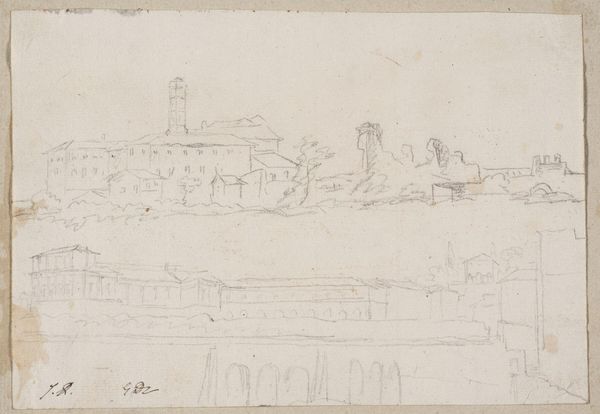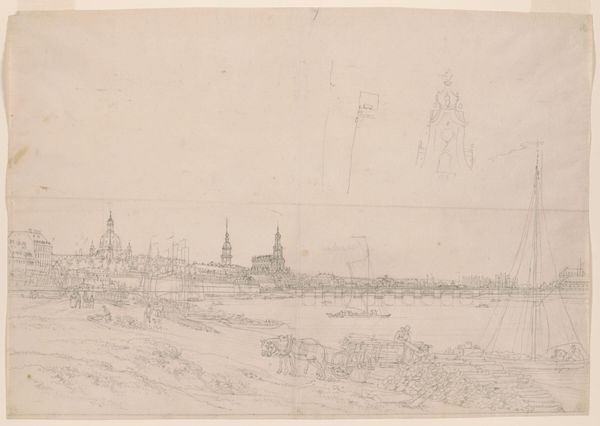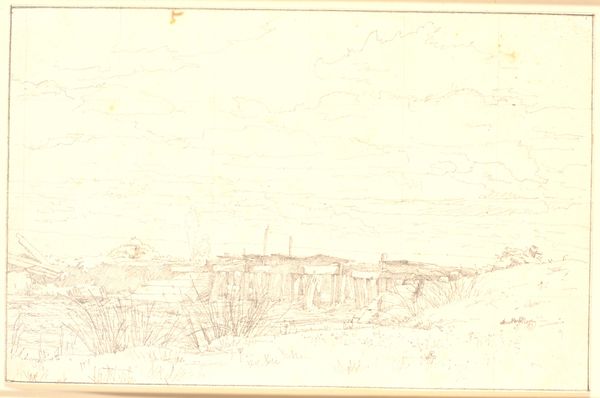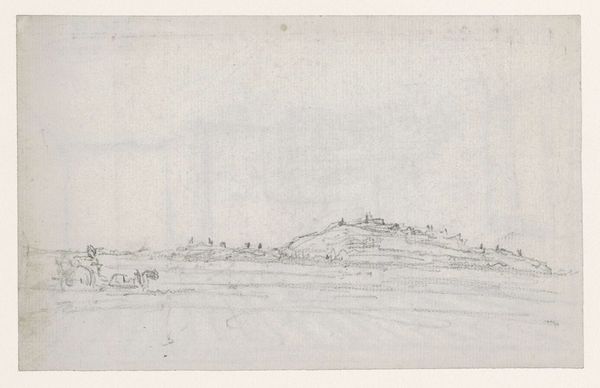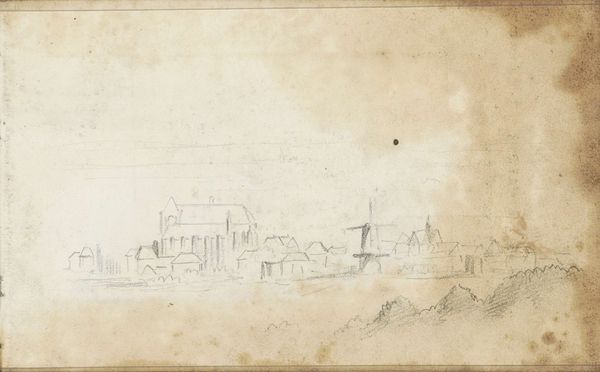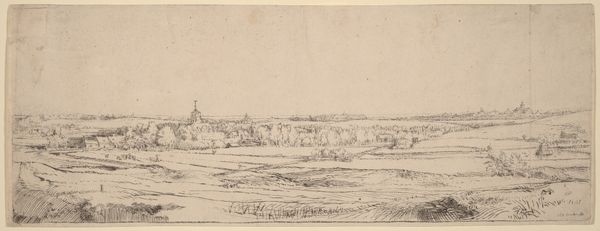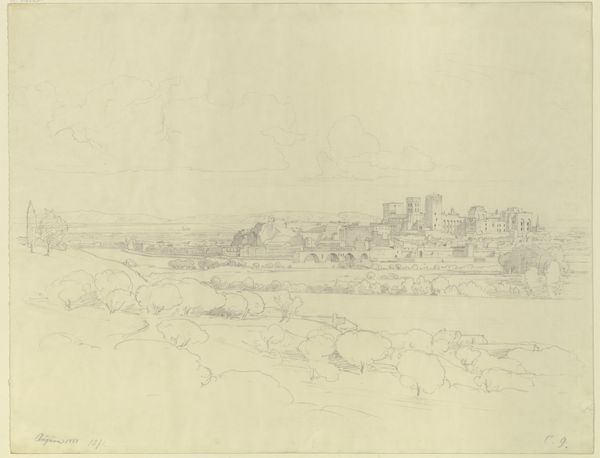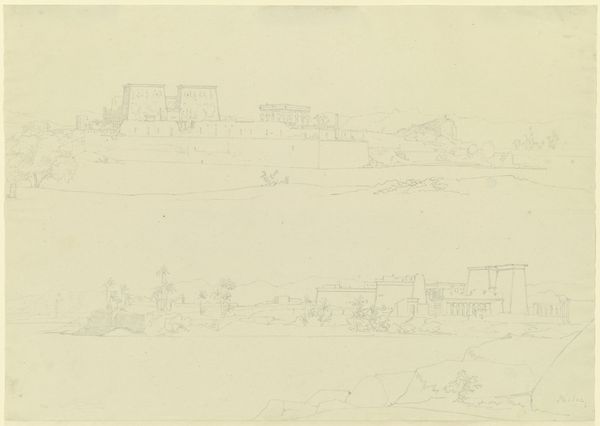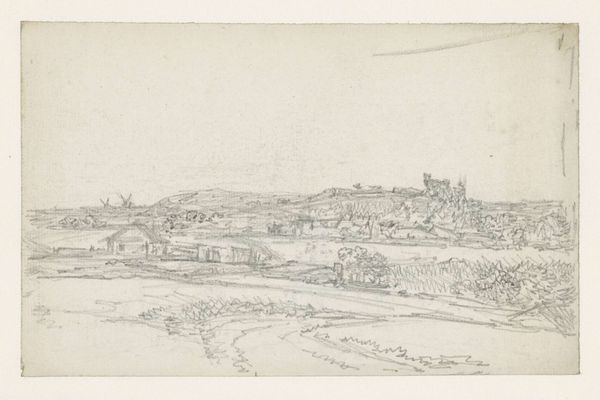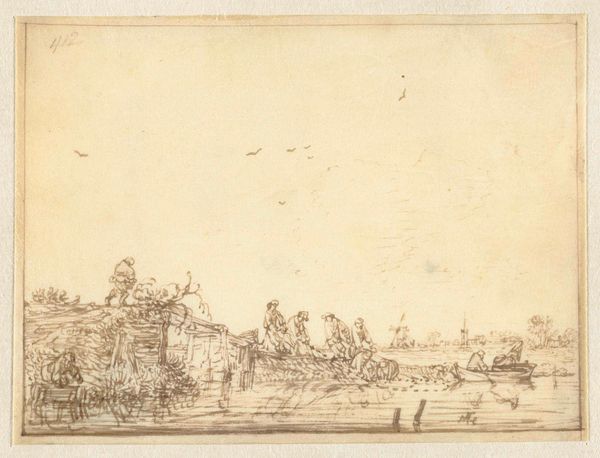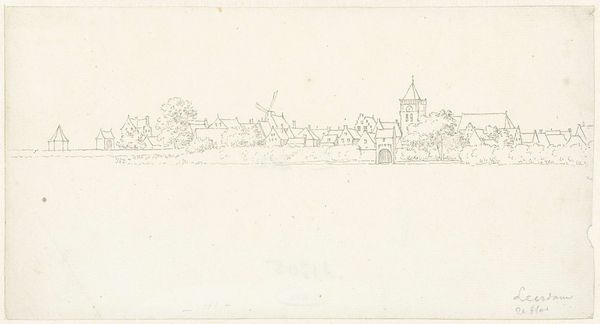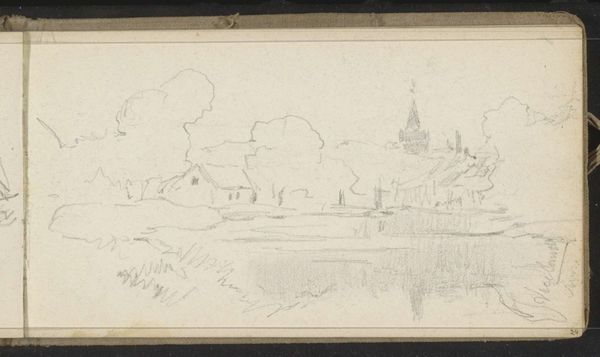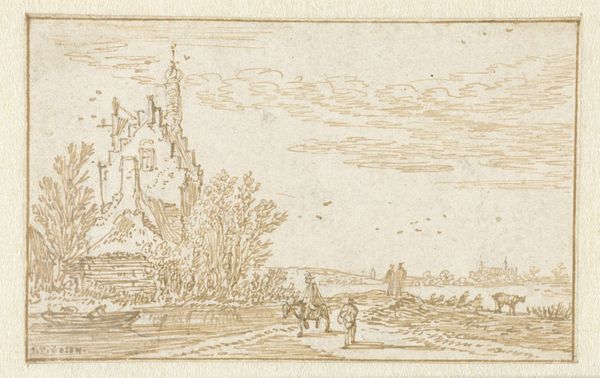
drawing, plein-air, pencil
#
drawing
#
plein-air
#
landscape
#
pencil
#
cityscape
Copyright: Public Domain: Artvee
Curator: What we’re looking at here is a drawing by Benjamin West, titled "Greenwich from the Park". It's a plein-air sketch done in pencil. Editor: It feels like a fleeting moment, almost as if captured on a whim. The softness of the pencil lends the entire cityscape a dreamlike quality, slightly hazy, definitely evokes a sense of nostalgia for me. Curator: Well, thinking about its potential creation at the time, such open-air drawings allowed artists direct engagement with the changing urban landscape. West, as president of the Royal Academy, would’ve been deeply interested in the narrative that cities like Greenwich were beginning to embody, acting almost as global epicenters during periods of vast transformation. Editor: Yes, and one can only consider that there were clear implications involved at that moment for the very public of Greenwich. The landscape itself is an actor on the drawing and there must be more going on behind just seeing the urban landscape. Consider for example the impact of the depiction of architecture within a wider social framework and its function as an imposition to an otherwise idyllic setting. The composition creates a subtle tension between urbanization and naturalism. Curator: The very absence of distinct, bold lines makes the setting appear both there and, to some degree, fleeting. Greenwich at this time symbolized imperial ambition as the epicenter of Britain’s global power, yet its image in light pencil almost creates a democratic availability. Its ethereal presence counters this assumption about power as West might have sought to make a quiet remark concerning how it could disappear as rapidly as it arrived. Editor: Absolutely. It is almost a paradox; whilst landscape paintings often served to naturalize social hierarchies, the conscious decision to go *en plein air*, with pencil in hand to capture such an immediate interpretation could itself signify a critique. The immediacy that arises through Wests mark-making and decision making invites a contemporary revisiting of history, urging a questioning of accepted historical narratives surrounding landscape depiction and social ideology. Curator: In essence, West prompts us to rethink our assumptions about the politics of representation itself and how places, people, and societal power all contribute in our overall viewing experiences. Editor: Exactly. This sketch shows how artworks always reflect much more than what is seen at face value and pushes towards the very boundaries of established norms.
Comments
No comments
Be the first to comment and join the conversation on the ultimate creative platform.
